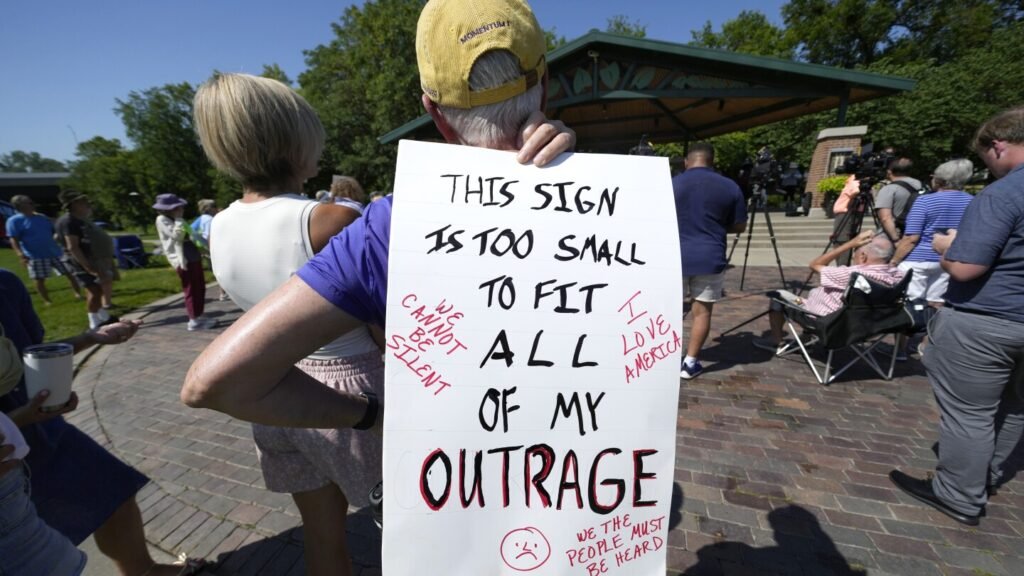WINDSOR HEIGHTS, Iowa (news agencies) — It is big and it is beautiful, says President Donald Trump.
But for many Democratic leaders, the tax break and spending cut package adopted by Trump’s Republican allies in Congress Thursday represents the key to the Democratic Party’s resurgence.
Even before the final vote was tallied, Democratic officials were finalizing ambitious plans for rallies, voter registration drives, attack ads, bus tours and even a multiday vigil — all designed to highlight the most controversial elements of Trump’s “big beautiful” bill: the deep cuts to the nation’s safety net that will leave nearly 12 million more Americans without health coverage and millions of others without food assistance, according to the nonpartisan Congressional Budget Office.
Indeed, in political battlegrounds across Alaska and Iowa, Pennsylvania and California, Democrats have already begun to use Trump’s bill to bludgeon their Republican rivals. Democrats are promising that the package — Trump’s biggest domestic policy achievement to date — will be the defining issue of every major election between now and next fall’s high-stakes midterms.
“One thing is abundantly clear: Republicans own this mess and it’s an albatross around their necks heading into the midterms,” Democratic National Committee Chair Ken Martin told media. “This is the least popular legislation in modern history, and the more voters learn about it, the more they hate it. That’s a clear directive for Democrats — we’re going to make sure every single voter knows who is responsible.”
Even with early public opinion on their side, however, it’s far from certain that the Republican budget bill will be the political winner Democrats hope.
The Democratic brand remains deeply unpopular, the party has no clear leader, its message is muddled and core elements of the Democratic base are frustrated and drifting. Some of the bill’s changes won’t take effect until after the 2026 midterms, so voters may not have felt the full impact by the time they vote. At the same time, it’s unclear how many voters are paying attention to the Washington-based debate.
The Democratic super PAC Priorities USA warned this week that Democrats must work harder if they want their message to break through the polarized media environment.
“We can’t just assume that because we’re angry that the voters that we need to communicate with are angry. Everyone needs to step up and realize the enormous challenge that’s in front of us,” Executive Director Danielle Butterfield said. “We’re nowhere near a good starting place.”
At its core, the bill’s priority is $4.5 trillion in tax breaks enacted in Trump’s first term that would expire if Congress failed to act, along with new ones. This includes allowing workers to deduct tips and overtime pay.
The package includes $1.2 trillion in cutbacks to Medicaid and food stamps and a massive rollback of green energy investments. The nonpartisan Congressional Budget Office estimates the package will add $3.3 trillion to the deficit over the decade.
Democrats in Congress were united against the bill, and even some Republicans expressed concerns. But ultimately, Trump persuaded the conservative holdouts to fall in line.
Privately, some Democrats conceded that Republicans were smart to pass the bill on the eve of a holiday weekend when fewer voters would be paying attention.
And as some Democrats in Washington predicted a fierce political backlash across America, the response was somewhat muted Thursday at a Democratic event in Iowa, barely 10 miles from the Iowa State Fairgrounds where Trump later drew thousands for an evening rally.
An audience of roughly 100 people listened as local Democratic officials railed against the legislation and called on voters to oust Republican Rep. Zach Nunn, the local congressman, for supporting it.
